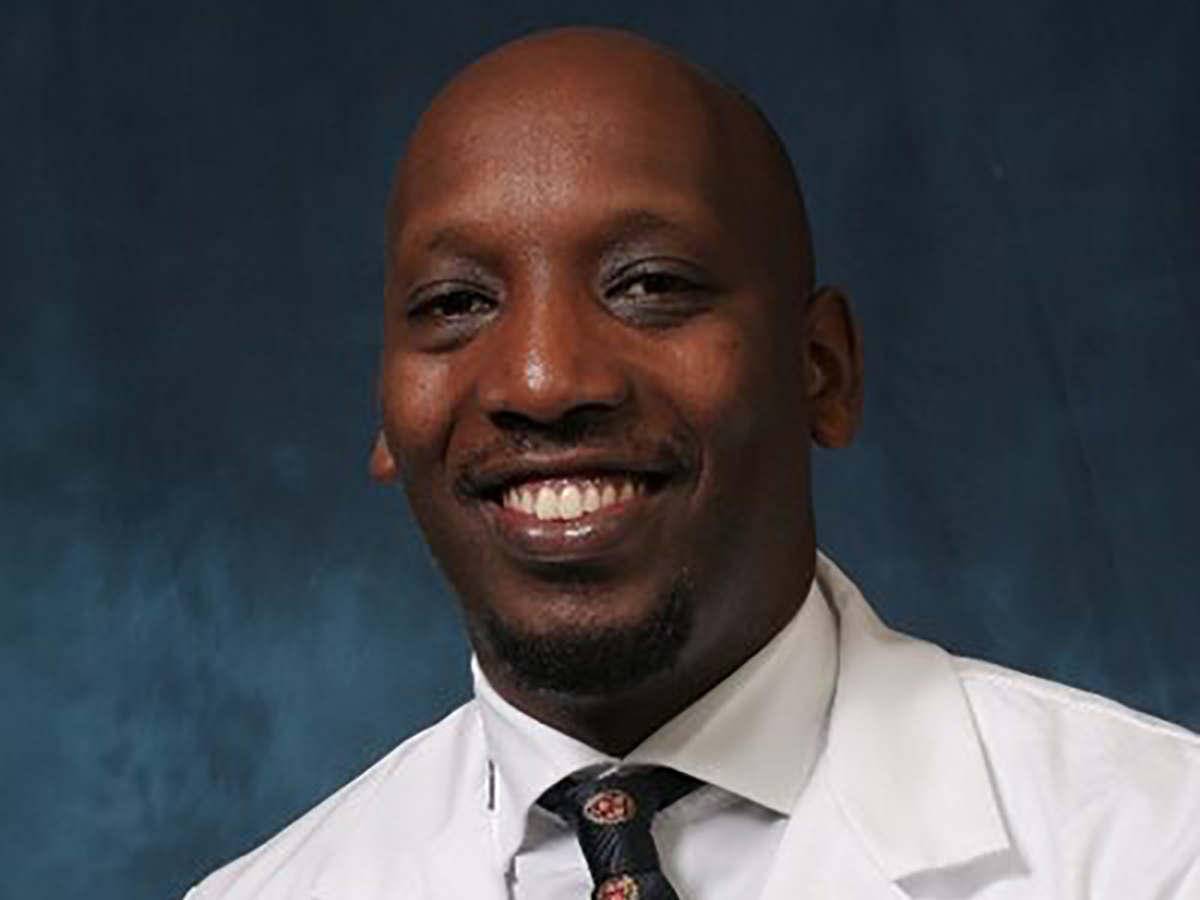Culture and community drives Dr Christian Ntizimira’s passion for palliative care
Culture and community drives Dr Christian Ntizimira’s passion for palliative care
by Natalie Peck
Tuesday, August 06, 2019
Dr Christian Ntizimira’s passion for palliative care comes from a very personal place of tragedy and cultural awareness. Dr Ntizimira will be the International Human Rights Keynote Speaker at 19OPCC in Perth this September, sharing his views on the importance of culture and humanitarian considerations in the provision of palliative care.
As a 16 year old Dr Ntizimira saw pain and suffering on an unimaginable scale during the genocide against the Tutsis in his home of Gisenyi in the north-west of Rwanda.
“One million people were left on the ground, but our humanity seemed lost too,” he says.
Driven to do something to help ease the pain and suffering that he had witnessed after the genocide, Dr Ntizimira pursued a career in medicine, graduating from the College of Medicine and Health Sciences at the University of Rwanda in 2008 with plans to become a surgeon.
That was until an encounter with a young patient set Dr Ntizimira on a new path, leading to a successful and globally recognised career in palliative care and health advocacy.
“In 2008 I met a 24 year old patient diagnosed with advanced liver cancer disease suffering unimaginable pain,” he recounts.
“His pain was unforgiving, and he was dying of agony. All of his family waited outside his private room because they could not endure to see the suffering of their loved one."
“His mother was kneeling before me, asking me to 'give something to let him sleep and wake no more' and I do still remember how she was begging in Kinyarwanda (our mother tongue) Muganga, mbabarira, which means ‘please I beg you’."
“Unfortunately I didn’t prescribe any strong opioids because of fear, and because I thought that morphine would hasten death. When I saw that I failed as a physician because I couldn’t prescribe morphine and the patient died the next day with horrible condition I also felt that I had failed as a Rwandan. In our culture when an elder person kneels before a young one, that means he has failed."
“I went home and asked myself: ‘Why had I spent so many years in medical school and I still could not relieve pain for my patient? Why do the dying have to suffer?’ It was then that I discarded my dream to be a surgeon to pursue a new passion in palliative care.”
As part of his work with the Rwanda Ministry of Health Dr Ntizimira went on to pioneer the integration of palliative care into health services rendered to Rwandan patients with chronic illnesses in acute care and community settings. As part of this program, from 2008 – 2013, more than 1500 health care providers and community health workers in Rwanda were trained in the principles of palliative and end of life care, leading to a five-fold increase in prescription of morphine, an essential pain medication.
He was also the founding coordinator of the first Paediatric Palliative Care Centre in Rwanda and in 2011 was part of Rwanda’s launch of Africa’s first national palliative care policy, strategic plan and implementation program to improve the quality of life of HIV/AIDS and cancer patients and their family members during treatments.
“One important lesson that came from the Rwandan experience was my work with family caregivers who taught me the Rwandan social context expressed ‘your family’. It was important in Rwanda to consider that a patient not as an isolated component, but as a fragment part of the community and a part of the wider society.”
Formerly a Fulbright scholar in Global health and Social Medicine at Harvard Medical School, USA, Dr Ntizimira is current City Cancer Manager in Kigali from the City Cancer Challenge Foundation, Geneva, Switzerland, and is gaining global recognition for his advocacy work around the integration of palliative care in health systems and how it can be shaped by the perceptions of the patient and the family caregivers in specific cultural settings.
In 2018 he became the first advocacy/policy champion among extraordinary individuals who are making a significant contribution to developing palliative care in low-and middle-income countries for World Hospice and Palliative Care Alliance (WHPCA).
As he prepares to travel to Australia in September, Dr Ntizimira says that he’s particularly interested in attending and participating in the Aboriginal approaches to death and dying pre-conference tour and sees his involvement role at 19OPCC as a “mutual exchange” of ideas.
“Culture matters in palliative care! Through my keynote address I’m hoping to share with Australia and other Oceanic countries different experiences of palliative care in Rwanda but also the lessons learnt in a society, post-humanitarian crisis.
“It will be more a mutual exchange of experiences with my Australian and other Oceanic countries colleagues’ experiences.”
“Culture, beliefs and local context values are not an ‘add-on,' or an after-thought in palliative care. They are essential components in patients’ treatment!
“It is imperative that when people talk about ‘palliative care as human right’ that they ensure that people’s dignity, local values and humanity is prioritised, and not necessarily just look to duplicate models of care from abroad.”
Registration is currently open for the 2019 Oceanic Palliative Care Conference in Perth from 10 – 13 September. Visit oceanicpallcare.com to view the Conference Program and register to attend.
The 2019 Oceanic Palliative Care Conference runs from 10 – 13 September at the Perth Convention Centre. Explore the 19OPCC Conference Programand register to attend at oceanicpallcare.com.au
Full Registration and Individual day registrations are available, with discounts for eligible students, volunteers and group bookings.

